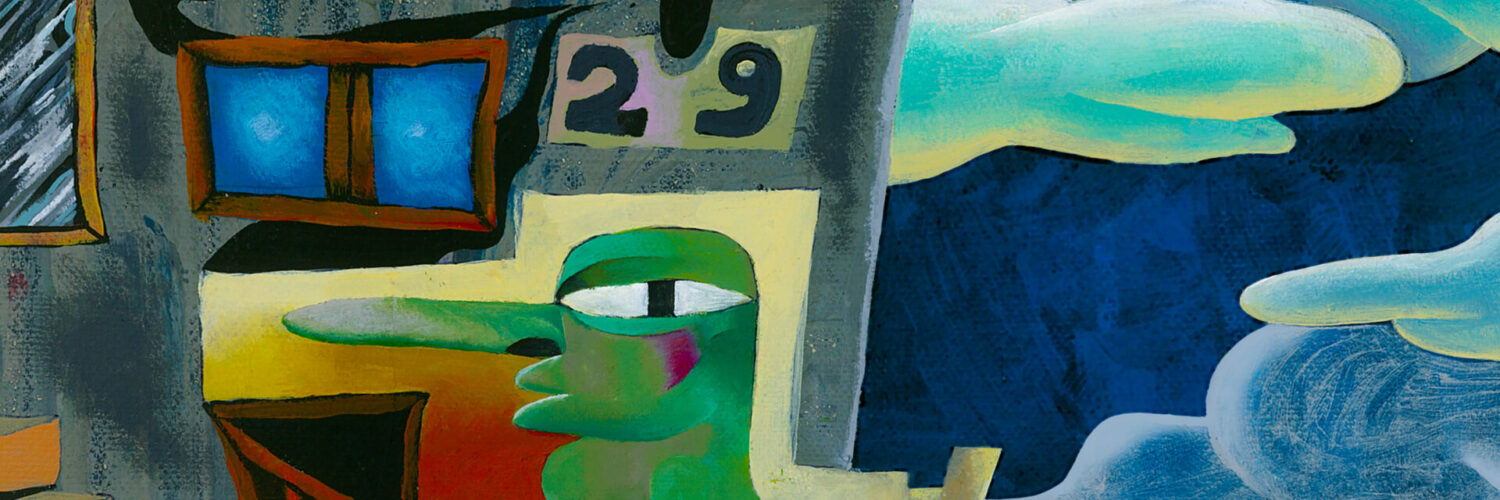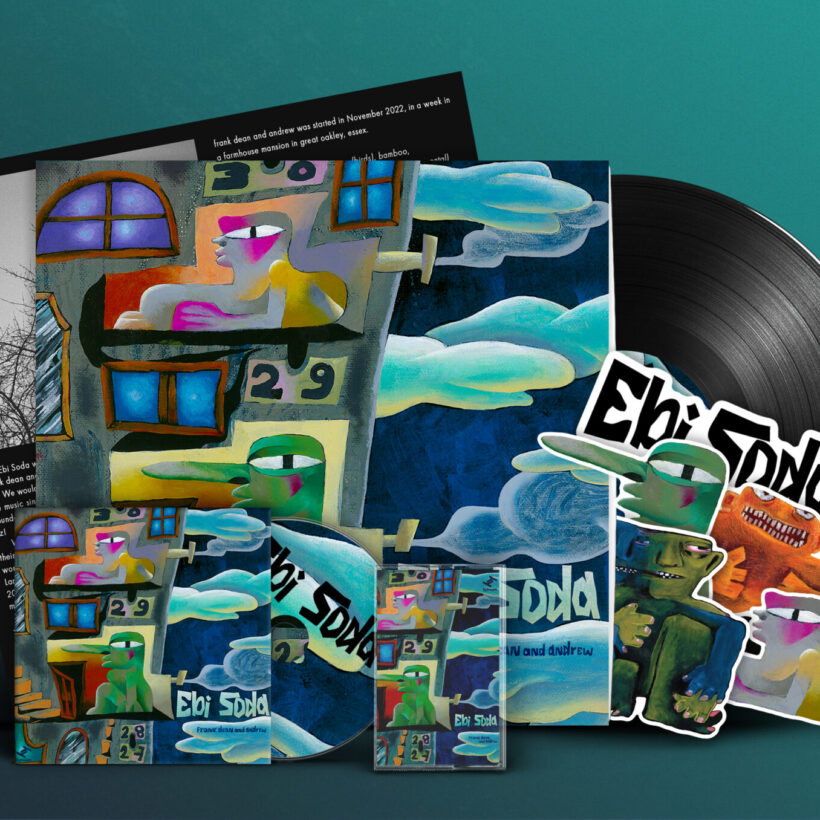

Ebi Soda unveil ‘frank dean and andrew’
Jazz-disruptors Ebi Soda return with their latest album ‘frank dean and andrew’ in September and announce a launch show at The Jazz Cafe
‘frank dean and andrew’ is released on vinyl, CD and cassette, pre-order HERE
Tickets for the ‘frank dean and andrew’ album launch at The Jazz Cafe are HERE
Harnessing the chaos born from endless jams in a remote, rented farmhouse, ‘frank dean and andrew’ dives deeper into their punk approach to jazz, while opening up space for long-nurtured fascinations with electronic textures and cinematic oddities. Their third album, it features previous singles feely, and bamboo.
The title was pulled from a bank of favourite names after the band saw Ez’s artwork; a quirky world of three cell-like flats housing absurd creatures. ‘frank dean and andrew’ nods to the anonymous, everyday passersby whose lives quietly unfold in the background of a nondescript town.
Pulling back the curtain on its creation further, the band reveals, “The album was recorded at the end of a year of extreme highs and lows. The tensions play out in the music in weird ways… the feeling of the music is very particular, and peculiar. Most UK Jazz music can end up too arranged and neat, or generally optimistic in mood, whereas this album goes the other way in all aspects.”
At the album’s core, the glitchy, late-night focus track red in tokyo features Chinese-Vietnamese-British rapper Jianbo, whose grimey, distorted flows cut through growling guitar riffs and a dragging, drill-like drum line. “It’s a weird, grimey anger with a touch of no-wave and post-punk,” the band explains, “Hari’s bass ended up sounding like a Japanese Koto”. The snarling energy is fitting, as Jianbo recounts a heated fight in Tokyo that left him “seeing red.”
Shifting through moods, the second track oscillates to life with a dubby bassline and bursts of distant, animalistic commotion, like a flock scattering after a disturbance. With unsettling keys and guitar, the instrumental upends the familiar contours of jazz and leaves a lingering unease as part of what the band calls the album’s “weird, off-key” side. Equally unexpected, the title, horticulturalists nightmare (birds), taps into the surreal fear lurking in the pulsing soundscape.
That freeform, borderless creativity carries into grilly, where the keys lay out the pace and mood. “The tempo and the ambience frame the track to be like a dance tune, but with a darkness from Burial-type ambiences and pulsing drill-style delays,” the band notes. As horn layers clear the haze, the jam’s raw energy and feeling come together as a transportive piece.
Taking a dip into the melancholic, toucan opens with a whir and solemn, ceremonial horns, underpinned by a mellow harmony that moves into far-off, choral-like overlays. Opening with a similarly dystopian eeriness is location, the band’s favourite. From the heavy slump of the drums to the three-piece horns of Dan, Akers, and Jonny, which counterpoint each other in a sea of reverb. The tune is named after a Playboi Carti song of the same name, inspired by the opening synth movement.
The title track, frank dean and andrew, flickers with a bittersweet nostalgia, capturing for Ebi Soda, a modern sense of indifference, a stay-at-home, it-is-what-it-is kind of resignation. It mirrors the mood of the figures on the album artwork: sitting alone in flats, suspended in quiet isolation. Lou’s chords, Hari’s chordal bass, and Sam’s laid-back tempo lay down a “loose, Midwest, emo undercurrent, a tone that runs deep in much of the hyperpop” the band had been absorbing. Will vocalises through the trombone, making it sound as though someone is singing down a crackling phone line. A flugelhorn overdub adds more warmth to the track’s slow-burning atmosphere, with trombone and sax joining the mix in the second half.
Closing the album is insectoid creatures are infesting the land, beginning as a dissonant, scattered hellscape of wailing improvisations, freewheeling robotic noise, and buckling delays that eventually rupture into a cinematic scape, giving way to an ascending sequence of hopeful, mood-settling melodies.
As a whole, the album’s character arises from stylising with production and mixing. The approach fluctuates between focusing on ambience and reverb, drawing from UK dubstep influences like Zomby, Burial, and Joe Armon-Jones’ collaborations with Maxwell Owin, and embracing the raw, grainy DIY ‘mixtape’ sound, inspired by artists like Athletic Progression, Yameii Online, and Playboi Carti.


